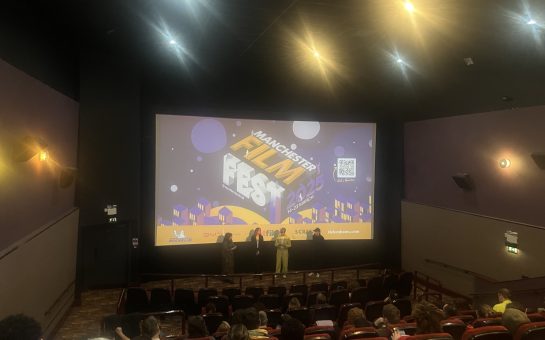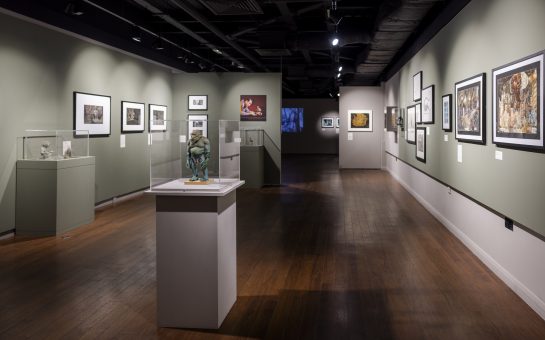Cornwall is always forgotten. It’s a holiday destination for some, a topless Aiden Turner for others, but for a minority, it’s their home.
The people who live in the simultaneously beautiful and impoverished county are the last spoken about when someone describes the picturesque coast, but they are the community that for generations have made it what it is.
The forgotten people are the subject of Mark Jenkin’s arresting and jarring first feature, Bait. Fishermen become a metaphor for the Cornish as a whole to tell a tale of outsiders encroaching, gentrification and a way of life lost to the modern world.
Bait focuses on Martin (Edward Rowe, main picture above), a fisherman in a small Cornish village, who through the decline of the fishing industry is without a boat and relying on selling £30 worth of fish a day to survive. His brother, Steven (Giles King) has given up on fishing and is ferrying rowdy tourists on 30-minute cruises to make ends meet.
Martin loathes his sibling’s new path and takes Steven’s directionless son Neil (Isaac Woodvine) under his wing and away from the lure of the quick buck that tourism provides. Gentrification takes away people’s rights to heritage and a connection to your family is lost when something that defined it for so long disappears. Neil’s decision to fish is his way of feeling like he belongs to his family.
Jenkin’s antagonists are the wealthy family from London who capitalised on the village’s struggles, buying Martin’s house right next to the harbour. The parents, Sandra (Mary Woodvine) and Tim (Simon Shepherd) make it clear Martin isn’t welcome, even clamping his car when he continues to park it by the harbour, insisting it’s ruining the experience for the obnoxious tourists.
The family aren’t all bad however and Neil strikes up a relationship with Sandra and Tim’s daughter, Katie (Georgia Ellery). Their entitled son, Hugo (Jowan Jacobs) is a different story and the tension between the two families becomes the key dramatic thrust, driving the narrative forward and the message home.
Shot on 16mm, the film is jarring at first, with all the sound and dialogue recorded after the shoot creating an other-worldly feel. This makes the characters feel alien, but instead of hindering our ability to empathise with Martin, it forces the audience to listen to him and to try and decipher a way of life unfathomable to most in the modern world.
Unlike most British films focusing on the working class, Jenkin doesn’t show the realities of life through a doggedly realistic lens, but instead takes the formula and adds a hint of psychedelia. The abrasive but straightforward approach allows the bursts of dialogue to resonate, with the melodrama hitting home each theme with succinctly.
Bait has plenty on its mind. It’s a film about gentrification, capitalism, Brexit and a place forgotten.
Jenkin isn’t subtle with the execution, but he combines all these strands confidently creating an angry and impassioned account of a community left behind.
In the last half-century the county has had their two key industries, mining and fishing, decimated, with outsiders capitalising, turning it into a tourist hotspot in the summer and a struggling ghost town for the rest of the year.
When the slimy Tim tells Martin he is contributing to the tourism industry, Martin replies: “What industry?”
This is the core of the film and will resonate with people from any place taken over by outsiders capitalising on the weakened industries, whilst giving the local people nothing in return.
Despite the formal experimentation, Bait is highly accessible. The story could have been filmed in numerous more conventional ways, so it’s heartening to see a filmmaker push the boundaries whilst maintaining the message’s clarity.
Jenkin’s previous short, Bronco’s House (2016) shared a similar form and feels like the warm up to this stunning feature debut.
Bait is a weird and ambitious diatribe highlighting a region of the country often forgotten. Moving, arresting and unlike anything out right now, Bait is a vital film exploring the pressing issues of our time.
Main image courtesy of @baitfilmuk via Twitter, with thanks.



